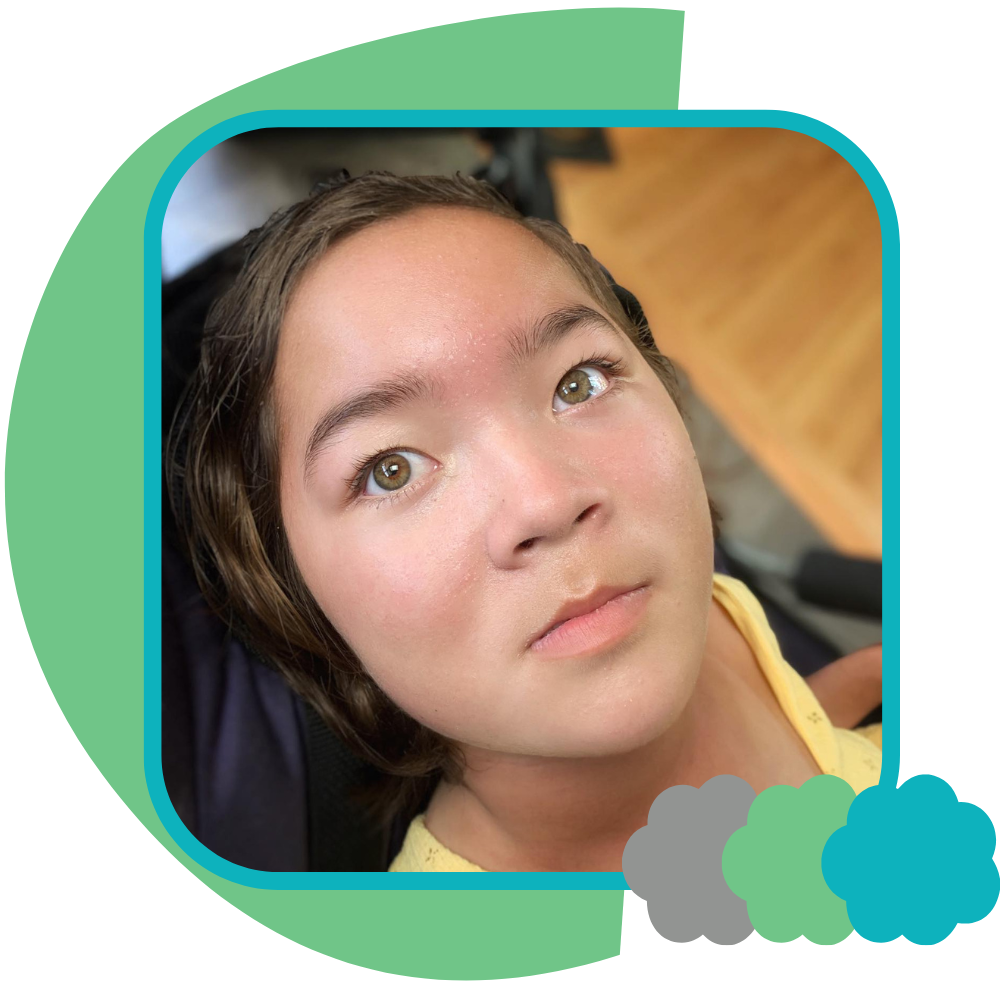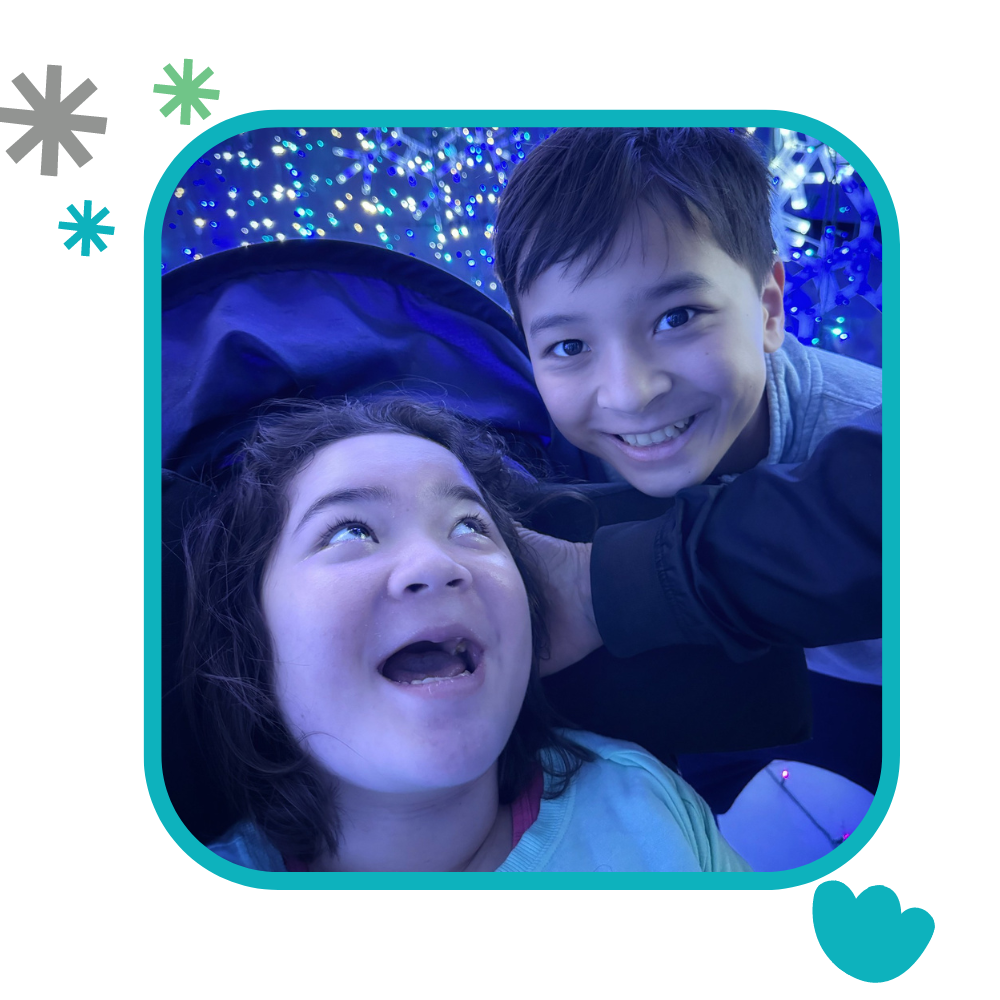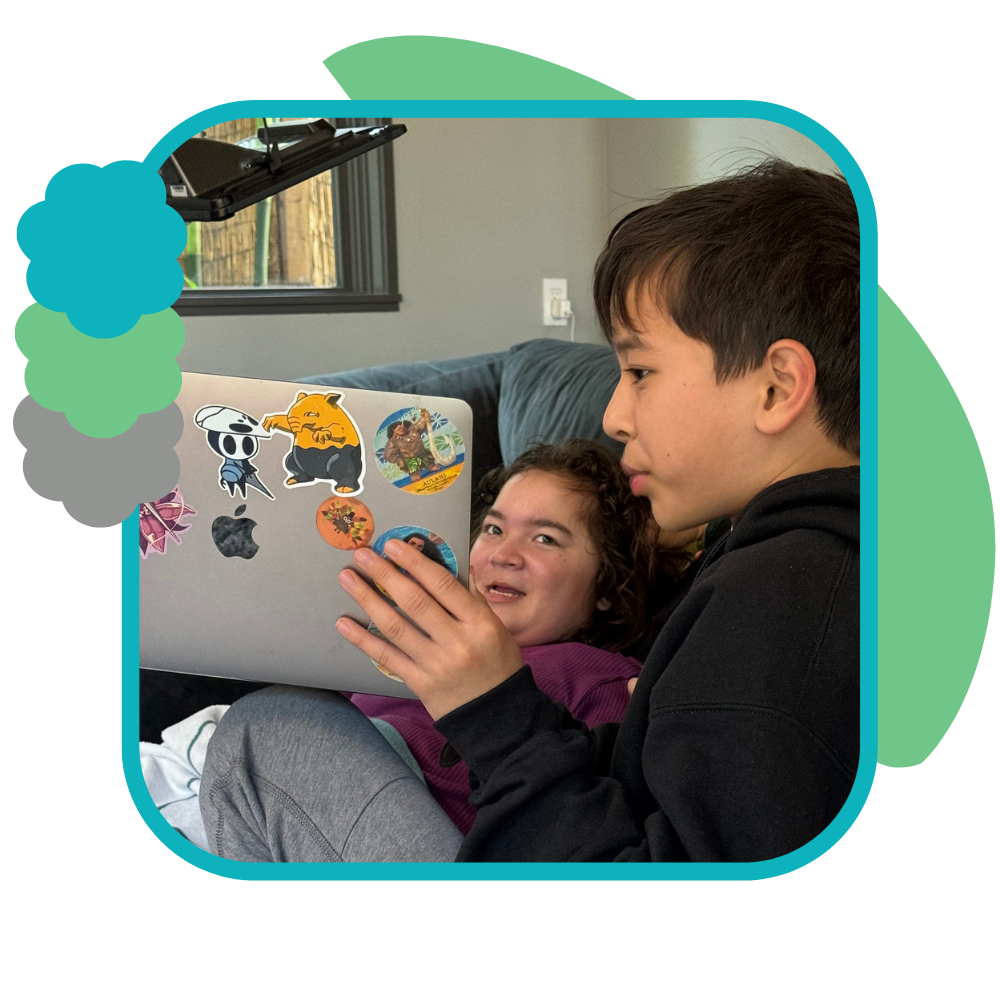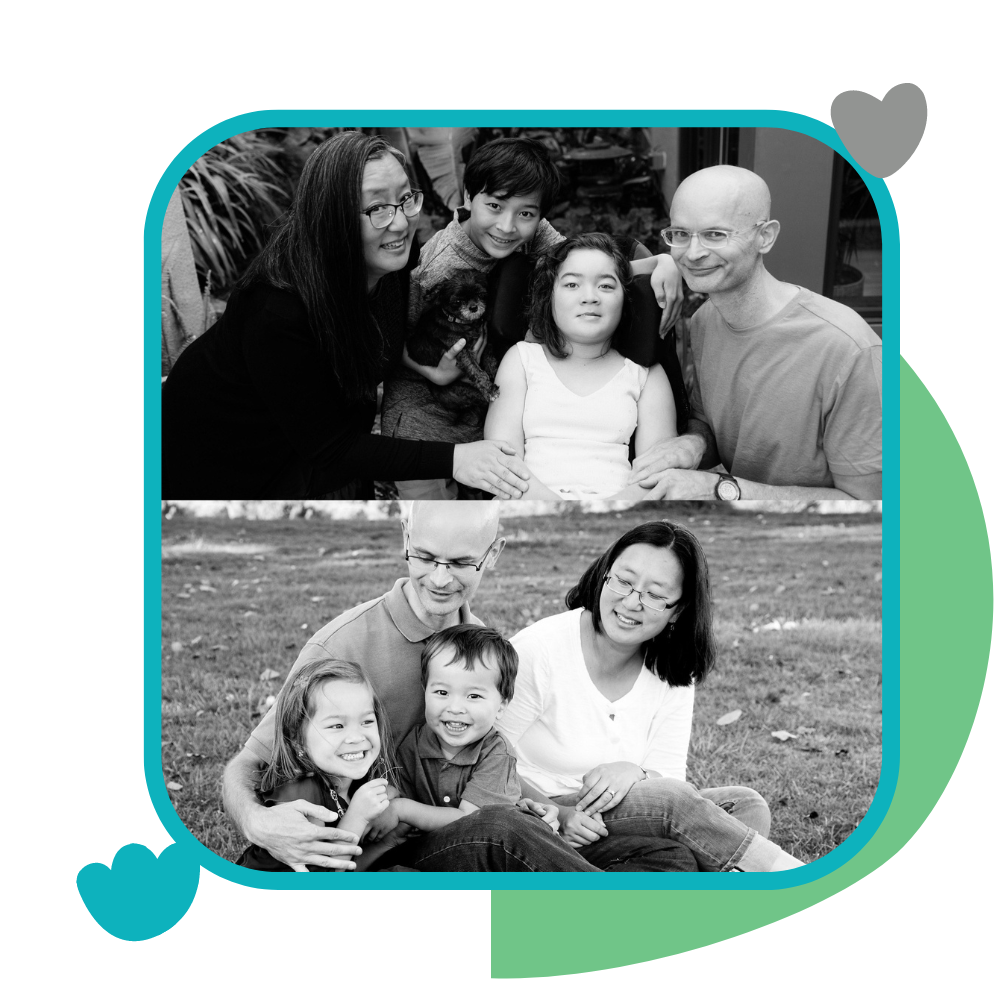As told by Iris’ brother.
How has GM1 gangliosidosis affected your life?
GM1 Gangliosidosis is something that has affected my life even though I don’t have it. The fact that my sister has it means my parents need to spend more time with her than me. I am ok with this, but it has caused me to be a more independent child. I have to remind myself to do my school assignments, and make my own decisions on what I should do rather than my parents making them for me.

I think that this makes me a better person because I have developed time management skills. The fact that my sister has GM1 also takes time from my own life, but not nearly as much as it does for my parents. Although my parents do most of the work for my sister, I do things like entertaining her, helping her when she is uncomfortable, and watching her while my parents are doing other things. Other than that GM1 Gangliosidosis does not have a huge impact on me.
How did you feel when your sibling received a diagnosis of GM1?
I don’t remember when my sister received the diagnosis for GM1
How has GM1 gangliosidosis affected your entire family?

GM1 Gangliosidosis has had a huge impact on my family. My mom has centered a huge part of her life around fundraising for and managing the foundation. I believe that this is a huge burden on her, I notice an aura of stress around her, particularly when she speaks about her work on the foundation. My Dad is always busy helping my sister with her medicine, helping her find something to watch, helping her get to bed, and generally caring for her which is a lot more intense due to her disability.
He is always tired at the end of day after caring for her all day. In general, I believe GM1 changes our family dynamic. We are always needing to center our plans as a family around whether or not my sister can participate in the activity. So in conclusion, GM1 has a huge impact on what we do, how we make our plans, and most of our mental health.
What is the hardest part of being a sibling of your loved one who has GM1?
The hardest part of being the sibling of a loved one with GM1 is how our plans must be centered around capabilities. There have been many activities that I have wanted to participate in, like camping as a family, or going on a hike that isn’t paved with concrete. Sometimes I feel like I’m missing out on some of the opportunities that define other people’s childhood, but in the end, I’m okay with that. I’m ok with sacrificing moments that could possibly define my childhood for my sister. I know that her health and comfort are more important than me feeling a little left out. This is hard to grapple with sometimes, but I know I could be living a much worse life than I currently am and I shouldn’t let these minor feelings be what I remember in 40 years.
What do you wish people understood more about rare diseases and the experience of living with GM1?
Something I wish people understood more about rare diseases in general is how it shouldn’t affect your viewpoint of that person. People act like the diseases these people are afflicted with are their fault. I hear the other people at my school mock people with rare diseases like it is a fault in their personality that is in their control.

I think it’s completely wrong that people with rare diseases deal with near complete social isolation because people can’t seem to comprehend that these are normal people outside of their disability.
If we could tell people just one thing about GM1 gangliosidosis, what would it be?
The fact that someone having the disease isn’t in their control.
Why should people support the Cure GM1 Foundation and rare diseases?

I think people should support rare disease foundations to prevent the torture a person with a rare disease endures. I think they should imagine themselves put into the shoes of a person with a rare disease. For example, imagine being a person with GM1. You would eventually lose your ability to walk, talk, speak, and barely be able to communicate basic needs with others.
You would experience near complete social isolation. Even when people spend time with you, they’ll probably patronize you and like they’re a saint for spending time with you. Even after all this, death is constantly looming over your shoulder with your drastically shortened lifespan. You know you’re gonna die soon and you can’t do anything about it. Supporting the rare disease foundations helps them develop a cure to this torture, to help prevent future children from experiencing the sheer torture.
